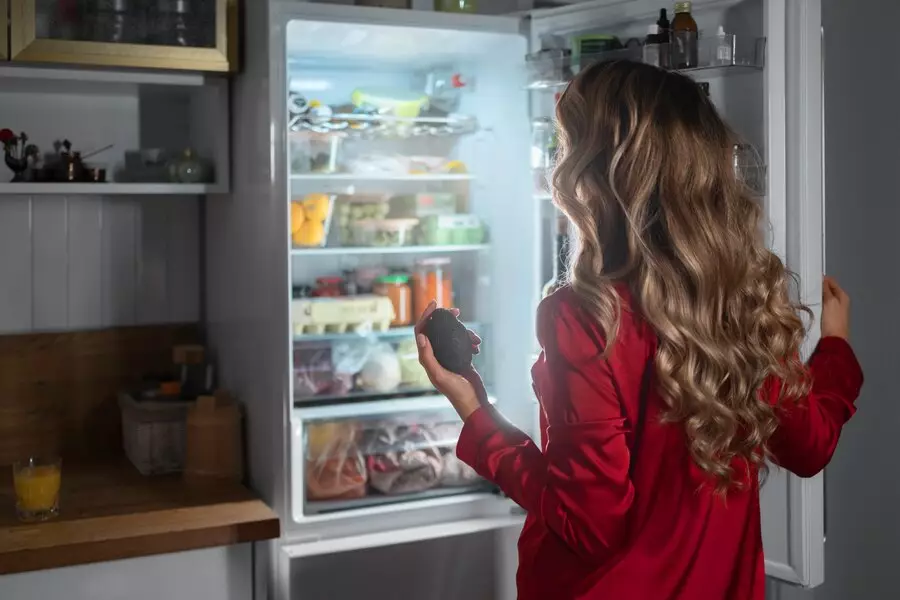Freepik.com
Brilio.net - Many people often store hot food in the refrigerator in the hope that the food will last and not spoil quickly. This habit occurs both with food that has just been cooked and food that has been reheated. However, is this practice actually good for your health and the condition of the refrigerator itself?
Quoting from the Healthline page, it turns out that almost 50-87% of people who experience illness are due to the food habits they consume at home. Moreover, food that is handled poorly, such as storing food in the refrigerator incorrectly. Research conducted by the National Institutes of Health found that digestive problems are closely related to what a person consumes.
Basically, storing food in the refrigerator is fine. However, before storing, the temperature of the food needs to be lowered to prevent several health risks. So what are the dangers of storing hot food in the refrigerator?
The following is a complete review of the dangers of storing hot food in the refrigerator, adapted by brilio.net from various sources on Tuesday (16/7) below!
The dangers of storing hot food in the refrigerator.

Dangers of storing hot food in the refrigerator
2024 freepik.com/various sources
When you eat food, of course you want to get the nutrition and nutrition. When food is cooked hot and then immediately put in the refrigerator, it has the potential to eliminate the nutritional content of the vegetable or food.
Instead of wanting to store food in the refrigerator so that the nutritional content is maintained, the situation is actually the opposite and detrimental. Yes, even though the food you store will last longer, its contents are not good for the body. There are no nutrients that the body can absorb unless they are converted into fat.
Adapting from Healthline, hot temperatures in food can increase the risk of disease caused by bacteria. Generally, bacteria reproduce more easily at room temperature. However, if hot food is put in the refrigerator, it certainly gives bacteria the opportunity to breed.
In fact, these food bacteria can be transferred to other foods. As a result, it can contaminate other food that you store in the refrigerator too. Therefore, it is not justified to store hot food in the refrigerator.
When eating food, of course you want to maintain its crunchy texture. Well, when hot food is put in the refrigerator it actually damages the texture.
As reported by Well and Good, food safety expert Ashley Scheuring gave an example of a mac and cheese menu that was put in the refrigerator while hot, and it turned mushy. In fact, the macaroni is deliberately baked so that the outside feels crispier.
This change in texture occurs because heat will cause condensation in the container, this process makes the food topping softer, thus changing the texture of the food.
The cold temperature in the refrigerator is useful for stopping the growth of bacteria so that stored food can last a long time. However, if you store hot food in the refrigerator, the temperature of the refrigerator can decrease and even damage.
When placing hot food in the refrigerator, such as hot soup, then close the refrigerator door. The refrigerator cooling machine has to work extra, and it even takes a long time to restore the temperature. As a result, the decreasing refrigerator temperature allows bacteria to grow when the refrigerator temperature decreases.
Apart from that, it can damage the refrigerator because the refrigerator's workload becomes heavier. As a result, if this condition continues, the refrigerator will not cool and cause electricity bills to increase.
Tips for storing food safely in the refrigerator.

Dangers of storing hot food in the refrigerator
2024 freepik.com/various sources
Adapting from the Allrecipes page, there are several safe tips for storing food so that it lasts a long time, including:
Before putting it in the refrigerator, it's best to cool it at room temperature until the food is completely cold. The process of speeding up food cooling can be done by soaking it in cold water. Or at least leave it on the dining table while covering it with a safe serving hood.
Once the food is cold, don't forget to close the food container tightly before putting it in the refrigerator. The goal is to maintain freshness while preventing contamination from dirt and bacteria.
Fruit and vegetables are susceptible to rotting if left at room temperature. Therefore, it needs to be put in the refrigerator. However, before that you need to wrap vegetables and fruit such as beets, strawberries, blueberries, carrots and the like in a dry, non-humid place. Well, dry towels can absorb water or excessive humidity so they are practical for keeping fruit and vegetables from rotting quickly.
Make sure not to store hot food in the refrigerator. Apart from that, close the refrigerator door tightly to maintain the temperature. Don't forget to clean the refrigerator regularly to avoid the growth of germs that contaminate the refrigerator.
(brl/psa)